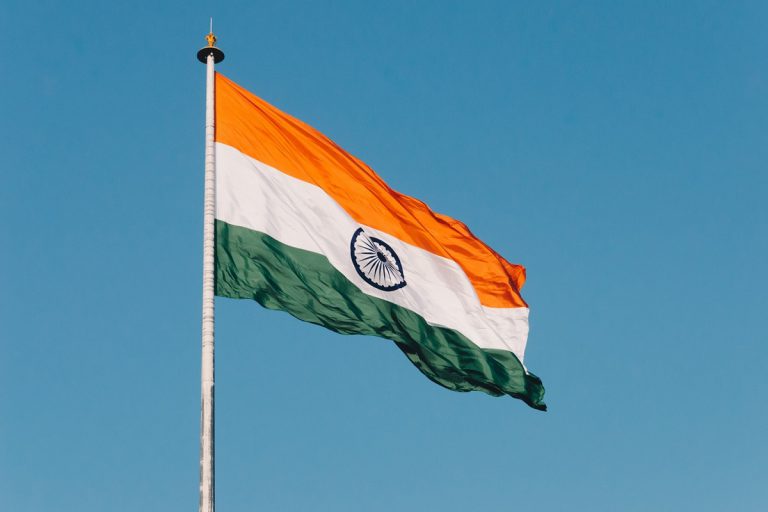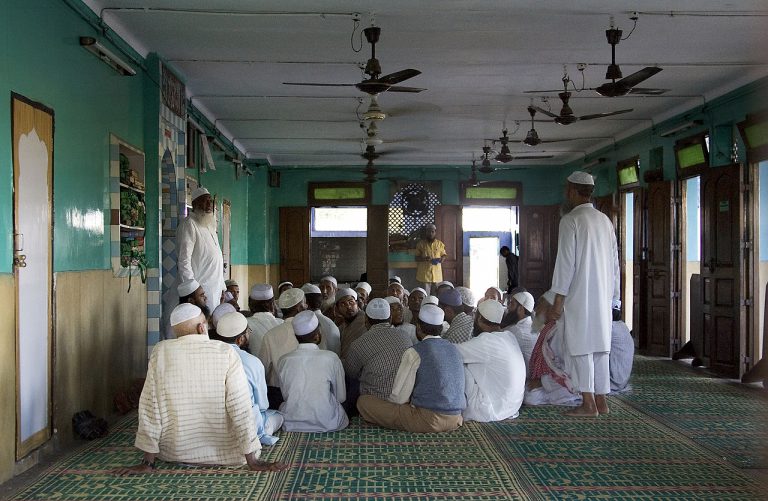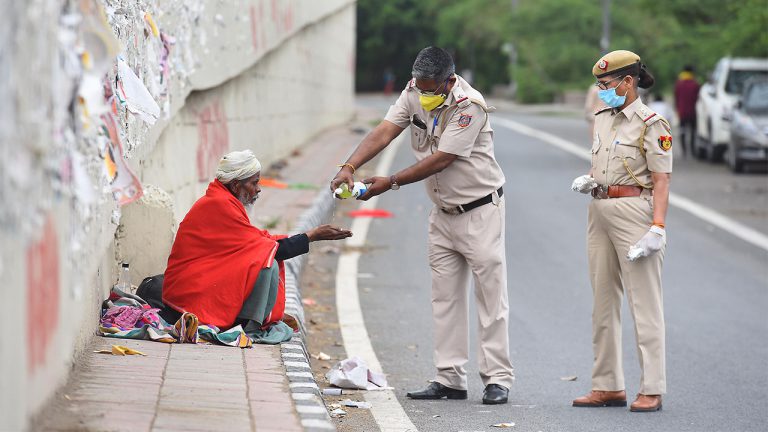Amidst pandemic- Capitalism as the ‘naked emperor’

Raviteja is pursuing his PhD in Sociology at the University of Hyderabad
In the 17th Century, Galileo said: “our universe is a grand book written in mathematical language.” That word is true in our daily lives. But now, with the spread of the corona pandemic around the world, the fear of death toll and the relief of recoveries day by day reveal how our lives have been reduced to just numbers. But we need to look beyond those numbers to understand our lives and our problems.
Historically, humans have been living in the face of nature. But it is commonsensical understanding to realize the fact that many living beings die because of us- just as we are infected with other species in nature. Every species strives to survive. In that process, the principle of coordination among different species is proven to be one of the most successful survival strategies. When that coordination is lacking, the human race encounters these pandemics from time to time. History is a testimony to that.
As Kate Jones, a Biodiversity Scientist at UCL, puts: “the transmission of disease from wildlife to humans is a hidden cost of human economic development“. Our metabolic relationship with nature is driven and determined by economic interests. Over time, our attitudes have become that the life of a human is precious than that of other beings. In a word, it would not be an exaggeration to say- if there is any being who doesn’t directly benefit other living beings, that is a human being. As a consequence, we are separated from nature. And now the neoliberal capitalist system is furthering the distance of humankind to nature with rapidity.
A little knowledge of virology and science would tell us the viral mutations and infections caused by them are not accidental events without any prior warnings. Information about the threat posed by this novel coronavirus (nCoV) has been around for years. But, either the “Big Pharma” or the capitalist governments have taken no substantial steps to eradicate the virus. This is no big surprise. Given the basic principle of capitalism is to realize more profits, this principle works better in designing the cures that than preventing them.
Now the disaster brought about by this virus is driving our entire society to turmoil. Because- this is a biological phenomenon with very serious social consequences. Many have already spoken that this crisis exposes us to the deep-seated flaws in our political, economic, and social systems (of course, they are all connected). This, however, doesn’t mean there are no flaws in our normal times. It is just that the ‘ruling elite’ didn’t heed to these flaws (sometimes, quite intentionally) while we are conditioned to adjust to those flaws.
Coming to the central problem i.e., health care crisis. If one were to look into the reasons critically, the health care system operates in a complete capitalist framework. This works at two levels. Firstly, access to health care is designed in the insurance model. This model excludes the elderly, the sick, and those who cannot afford insurance policy and is tied to only certain employments. Secondly, the government schemes such as Ayushman Bharat and Arogya Sree though proclaim to be “pro-poor” and “health for all”, are actually couched in neoliberal logic.
Medical care is a guaranteed right and a social responsibility for everyone who lives here. However, this capitalist system, on the one hand, drives out public money in favor of private players in the health care sector (with the type of schemes mentioned above). And, on the other, it determines “who are eligible” and “who are not eligible” in the profit-oriented health care system (insurance model). If one were to draw a connection to nature again- the attitude with which we behaved ‘life of a human is precious than others’ is the same attitude that also determines ‘who among humans are precious.’ More or less, this logic operates in the entire capitalist system.
The government’s spending on essential services such as education and health is an investment for the future. But the capitalist system convinced most of us into believing that such spending is an expenditure which is “too costly,” or a “tax burden.” What explains the fact that the paying taxes pain most of the earning people more than out of pocket expenses on health and education other than the capitalist logic? Household’s out of pocket expenses on health and education are normalized. Exactly, capital needs this kind of situation to harvest their businesses and accumulate profits.
Just to provoke, here’s a simple hypothesis: If the savings-to-income ratio decreases in the middle and lower-income groups, then the surplus will reach the top 1-10% of business people faster. Though there are many profit-seeking people in this type of system, those on the top of the business need to have this kind of business ecosystem. This begs us the question. We are forced into an economic system where few individuals (read business people) reap the benefits of free markets. Lives of a lot many are being dictated and crushed by markets. Why?
Capitalism is not a simple economic policy but a system that seamlessly entrenches into social and political spheres. Though the virus behaves democratically, our social structure- that has been shaped by caste, religion, gender, class, and region- makes the virus discriminatory. And capitalism sharpens that discrimination. If we were to see, no disaster casts the same effect on all of us. This crisis is – the problem of life and death for one, the problem of employment for another, the problem of hunger for some, and the problem of lacking a house during this lockdown for some other.
Given these fault lines and variability, protecting the ‘most vulnerable’ first has to be the natural norm in any civilized society, during any crisis. But Governments are no exception to such discriminatory behaviour. For instance, whose lives have been the priority when the central government announced a lockdown of three weeks with just 4 hours of notice without making any alternative arrangements for lakhs of migrant labourers? Whose lives are given importance at the cost of whom? Isn’t it then the message – “we are all together” in this fight against the virus just rhetorical? Even when the vaccine gets available tomorrow, what is the guarantee that this capitalist system and these governments will not determine ‘who deserves it first’, ‘who is eligible’?
But holding the global capitalist system entirely responsible for this virus-induced crisis may not be entirely accurate. Considering the history of these pandemics would tell us that such epidemics have occurred many times, even in the pre-globalization period. But an essential aspect of globalization is: “time-space compression”. Improved communication technology and transportation logistics have reduced the time and cost of travel from one place to another place, also called “relative distance”. Now, the virus can also travel as fast as potential virus bearers. For example, the spread of the Black Death (14th-century pandemic that claimed roughly 200 million human lives) from East Asia to Northern Europe has taken nearly a decade. Similarly, it took more than a year for the Spanish flu (20th-century pandemic that claimed 40 to 50 million lives) for its spread.
Now, the novel coronavirus has spread 200 countries in just about four months. However, one must note that we are at an advantage over viruses in terms of scientific knowledge and global coordination (Harari, 2020). That is why, if it took years to find out why and what caused disease in the Middle Ages, we are now able to detect the virus and trace the symptoms (case in point nCoV) in just two weeks. But, one needs to note that this achievement of scientific knowledge and coordination could as well be possible in a different kind of economic system.
Given the gravity of the situation that this pandemic has brought the global society into, this crisis definitely sparks a debate vis-à-vis our economic system and public health. But if this debate does not channelize towards bringing the environment actively into our henceforth economic policies and towards bringing unconditional health care for all with health care for ‘most vulnerable’ being the determining factor. Then the human society will not be able to face the crises that these pandemics bring about.
Telugu version of the same article appeared in Andhra Jyothi daily on 22.04.2020
Featured Image Credits: Wikimedia








Readers' Reviews (1 reply)